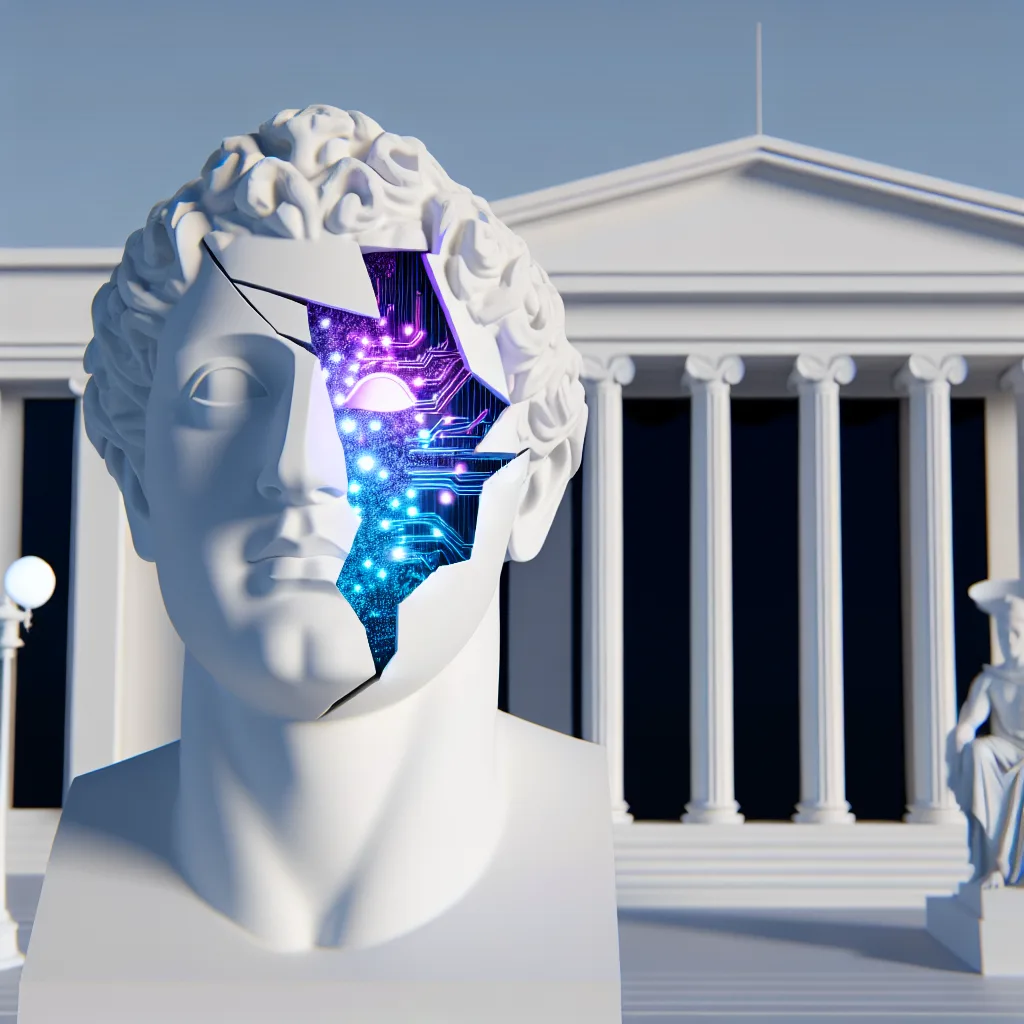The OpenAI lobbying controversy is more than just headlines—it’s a peek into the battle for the future of AI safety.
Remember when OpenAI felt like the “good guys” in the race to build artificial intelligence? It seems like a lifetime ago, but their original mission was all about creating safe AI that would benefit everyone. It was a comforting thought. But a recent storm of criticism, especially surrounding the OpenAI lobbying controversy in California, has a lot of people wondering if the company has lost its way. It’s a story about ideals, money, and who gets to write the rules for our digital future.
It feels like every week there’s a new headline about AI, but this one is worth paying attention to. Let’s break down what’s actually going on.
The Big Deal About California’s AI Bill
At the center of this whole debate is a piece of legislation in California, often referred to as a key AI safety bill. The goal of bills like this is pretty straightforward: to put some common-sense guardrails in place for the most powerful AI models. Think of it as requiring transparency, safety testing, and a clear line of accountability before these incredibly complex systems are released into the wild.
The idea is to prevent worst-case scenarios and ensure that the companies building this world-changing technology are held responsible for its impact. You can track the progress of similar real-world bills on official legislative websites, which provide a transparent look into how our laws are made. This isn’t about stopping progress; it’s about making sure progress doesn’t run us over.
The Heart of the OpenAI Lobbying Controversy
So, where does OpenAI fit in? Well, reports and accusations from activists—and even OpenAI co-founder Elon Musk—claim the company has been working hard behind the scenes to weaken or kill this safety bill. This is the core of the OpenAI lobbying controversy.
For critics, this looks like a classic case of a powerful corporation trying to avoid regulation. But it feels different coming from OpenAI. This is the company that was founded as a non-profit research lab with a mission to prevent an AI catastrophe. They were supposed to be the champions of safety, not the ones lobbying against it. The contrast is jarring. It’s like finding out your favorite organic juice company is secretly lobbying against clean water standards.
Was OpenAI Built on a Lie? A Look Back
To understand why this feels like such a betrayal to some, you have to remember OpenAI’s origin story. When it launched, its structure as a non-profit was a huge deal. It was a public statement that their work was about more than just profits; it was about protecting humanity. As WIRED and other outlets have documented, this idealistic foundation was central to its identity.
But things changed. To get the massive funding needed to build models like GPT-4, OpenAI created a “capped-profit” company. This hybrid structure, while innovative, opened the door to the immense corporate pressures we see today. The partnership with Microsoft poured in billions of dollars, but it also raised questions: when your original mission clashes with your business interests, which one wins? This current lobbying effort seems to be answering that question.
Why the OpenAI Lobbying Controversy Matters to You
Look, I get it. A fight over a bill in California can feel distant. But the outcome of this sets a precedent for the entire world. The OpenAI lobbying controversy is a test case for a huge question: will we, the public, get to set the rules for AI through our elected officials, or will the handful of companies building the technology get to regulate themselves?
When a company created to ensure AI safety actively works to undermine safety legislation, it sends a powerful message. It suggests that when the choice is between public good and corporate growth, the mission takes a backseat. This is a pivotal moment. The decisions made now, in late 2025, will shape how AI is integrated into our lives for decades to come.
Ultimately, this isn’t just about OpenAI or one specific bill. It’s about whether we can build this incredible technology in a way that is genuinely safe and beneficial for everyone, not just for the companies that own it. What do you think? Is this just the inevitable evolution of a tech startup, or is it a warning sign we shouldn’t ignore?
